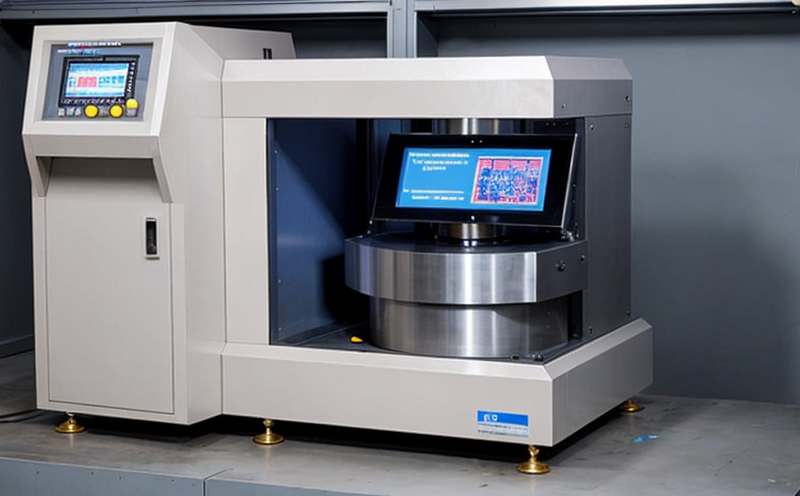ISO 10360-7 CMM Length Measurement Accuracy Testing
The ISO 10360 series of standards is widely recognized as a benchmark for ensuring dimensional accuracy in coordinate measuring machines (CMMs). Specifically, ISO 10360-7: Dimensional Accuracy and Metrology Testing focuses on the length measurement capabilities of CMMs. This service ensures that your manufacturing processes are meeting international quality standards.
The testing procedure is designed to evaluate the accuracy of linear dimensions measured by a CMM. It involves a series of checks aimed at verifying the machine’s ability to measure lengths with precision and repeatability. The standard provides detailed guidelines on how to perform these tests, including the types of specimens used, the measurement procedures, and the acceptance criteria.
The testing process begins with thorough preparation of the CMM and its environment. This includes ensuring that the machine is calibrated according to manufacturer specifications and that all software updates are applied. Once the machine is ready, a series of test pieces are measured using various techniques to assess different aspects of length measurement accuracy. These tests can include:
- Measuring the same reference point multiple times (repeatability).
- Measuring known lengths with high precision standards.
- Comparing measurements against certified reference materials.
The results are then analyzed to ensure compliance with ISO 10360-7 requirements. This includes checking for deviations from expected values and ensuring that the machine meets specified tolerances. The testing process is critical in maintaining the integrity of production processes, especially in industries where precision is paramount.
Understanding the importance of dimensional accuracy in manufacturing cannot be overstated. In sectors such as aerospace, automotive, and medical device manufacturing, even small errors can lead to significant safety issues or costly rework. By ensuring that your CMM meets these stringent standards, you are not only adhering to international best practices but also enhancing the reliability and quality of your products.
The benefits extend beyond mere compliance; they include improved process efficiency, reduced scrap rates, and enhanced customer satisfaction. This service is essential for any organization looking to maintain a high level of precision in their manufacturing processes. Whether you are an R&D engineer focusing on new product development or a compliance officer responsible for ensuring adherence to industry standards, this testing ensures that your CMM is performing at its best.
Why Choose This Test
- Comprehensive evaluation of length measurement accuracy on your CMM.
- Ensures compliance with international standards (ISO 10360-7).
- Promotes process efficiency and reduces scrap rates.
- Enhances product reliability, critical in sectors like aerospace and automotive.
- Provides detailed reports for continuous improvement.
Choosing this test ensures that your manufacturing processes are meeting the highest international standards. By adhering to ISO 10360-7 requirements, you not only enhance the precision of your products but also demonstrate a commitment to quality and reliability.
Environmental and Sustainability Contributions
The use of advanced metrology testing in manufacturing contributes positively to environmental sustainability. By ensuring that CMMs are operating at peak performance, you reduce waste, lower energy consumption, and extend the lifecycle of your equipment. This not only benefits your organization but also has broader implications for industry standards and best practices.
Competitive Advantage and Market Impact
Meeting international standards like ISO 10360-7 can provide a significant competitive advantage in the market. Customers increasingly demand products that are not only reliable but also produced with high precision. By demonstrating your commitment to these standards, you enhance customer trust and loyalty.
In addition, adherence to such stringent testing protocols positions your organization as a leader in quality assurance. This can open doors to new markets and partnerships, contributing to long-term business growth and sustainability.





